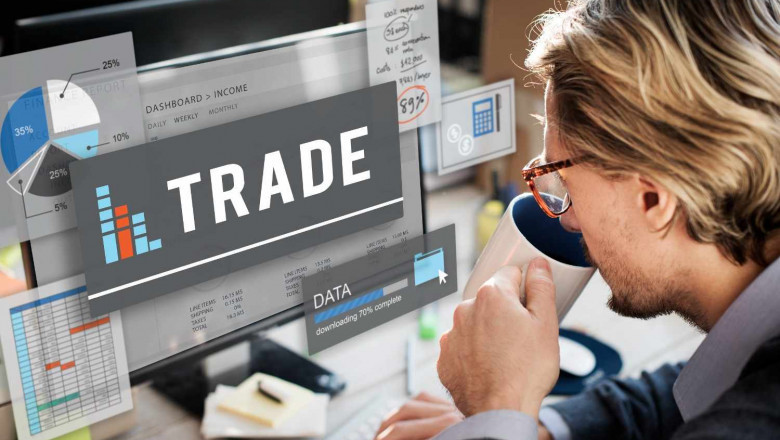views
In today’s fast-paced financial markets, building a robust and secure trading platform is not just a competitive advantage – it’s a necessity. When embarking on custom trading platform development, security must be a foundational pillar, not an afterthought. At FX31 Labs, we specialize in providing cutting-edge solutions that prioritize both innovation and security, ensuring our clients can operate confidently in volatile markets.
This blog dives deep into the essential security measures that every development team should integrate when creating a custom trading platform.
Why Security Is Crucial in Trading Platforms
Financial applications, especially trading platforms, are prime targets for cyberattacks. They handle sensitive user data, process high-value transactions, and connect to multiple third-party services, making them vulnerable to threats such as data breaches, DDoS attacks, insider fraud, and API abuse. A single vulnerability can lead to massive financial losses, reputational damage, and regulatory penalties.
Therefore, security should be embedded throughout the custom trading platform development lifecycle, from architecture planning to deployment and maintenance.
1. End-to-End Data Encryption
Encryption is the cornerstone of data protection. Every piece of data – whether in transit or at rest – must be encrypted using robust protocols like TLS (Transport Layer Security) and AES (Advanced Encryption Standard). This ensures that even if malicious actors intercept the data, they cannot decipher it without the decryption keys.
Key tips:
-
Use TLS 1.3 for all communications.
-
Apply encryption not just to user data, but also to logs, backups, and internal system data.
-
Regularly rotate encryption keys and store them securely using a hardware security module (HSM) or key management system.
2. Multi-Factor Authentication (MFA)
Single-factor authentication (such as just a password) is no longer sufficient. Implementing multi-factor authentication significantly strengthens account security by requiring users to verify their identity through at least two independent factors, such as:
-
Something they know (password or PIN)
-
Something they have (a mobile device or hardware token)
-
Something they are (biometric fingerprint or face recognition)
This measure is especially critical for admin and broker accounts with elevated privileges.
3. Secure API Design and Management
APIs are the backbone of trading platforms, enabling integration with external data providers, liquidity pools, and payment systems. However, they can also be exploited if left unsecured.
Best practices for API security:
-
Apply OAuth 2.0 or JWT for secure authentication and authorization.
-
Implement rate limiting and throttling to prevent abuse and DDoS attacks.
-
Use input validation and sanitization to prevent injection attacks.
-
Monitor API traffic continuously for suspicious patterns.
4. Role-Based Access Control (RBAC)
Not every user or system component should have unrestricted access. A role-based access control (RBAC) system ensures that users and services only have the permissions they need to perform their specific tasks – nothing more, nothing less.
Benefits of RBAC:
-
Minimizes the risk of insider threats.
-
Reduces the attack surface.
-
Simplifies auditing and compliance reporting.
At FX31 Labs, we design platforms with granular access controls tailored to each client’s operational model.
5. Regular Security Audits and Penetration Testing
A platform is only as secure as its weakest link – and sometimes, those weak points are invisible without rigorous testing. Regular security audits and penetration tests are vital to uncover vulnerabilities before malicious actors do.
Key components:
-
Conduct third-party security assessments at least annually.
-
Use automated vulnerability scanners alongside manual code reviews.
-
Prioritize patching and remediation based on risk level.
Custom enterprise application development often spans complex systems; security assessments should cover not just the trading platform but all interconnected services.
6. Secure DevOps (DevSecOps) Practices
Security cannot be "bolted on" after development – it must be baked in. DevSecOps integrates security checks throughout the development pipeline, ensuring every code change is evaluated for risks before deployment.
Best practices include:
-
Automated code scanning in CI/CD pipelines.
-
Container security and vulnerability management.
-
Secure configuration management and secrets handling.
-
Continuous monitoring and logging of application behavior.
7. Regulatory Compliance and Data Privacy
Trading platforms operate in highly regulated environments, from GDPR in Europe to SEC regulations in the U.S. Compliance is not optional; it’s a legal necessity.
Ensure that:
-
User data collection and storage follow applicable privacy laws.
-
Consent management mechanisms are in place.
-
Data retention and deletion policies are clearly defined.
-
Systems are auditable to support regulatory reporting.
FX31 Labs integrates compliance requirements directly into platform architectures, saving clients time and reducing risk.
8. Distributed Denial-of-Service (DDoS) Protection
Trading platforms must remain available even under attack. DDoS protection is essential to maintain uptime during malicious traffic floods.
DDoS mitigation strategies include:
-
Using cloud-based DDoS protection services (e.g., Cloudflare, Akamai).
-
Implementing traffic filtering and anomaly detection.
-
Having failover and redundancy plans in place.
9. Incident Response and Recovery Plan
No system is 100% invulnerable, which makes having a solid incident response plan critical. This plan should outline how the organization will:
-
Detect and contain security breaches.
-
Communicate internally and externally.
-
Recover systems to a secure operational state.
-
Learn and improve from security incidents.
Regular drills and tabletop exercises ensure that the response team is prepared when the unexpected happens.
Conclusion
Custom trading platform development is a complex and high-stakes endeavor where security must be prioritized at every stage. From encryption and authentication to compliance and incident response, each security measure works together to safeguard the platform, its users, and its stakeholders.
At FX31 Labs, we bring deep expertise in custom enterprise application development and tailor each solution to meet the unique security and performance needs of our clients. Our focus is on delivering not just feature-rich trading platforms, but ones that are resilient, compliant, and future-proof.
If you’re embarking on a custom trading platform project, ensure that your development partner understands the critical importance of security. The financial integrity and reputation of your business depend on it.














Comments
0 comment